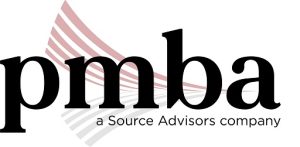Ever since the Wayfair v. South Dakota Supreme Court decision in 2018, states have gradually established rules to take advantage of new sales tax revenue streams from out-of-state retailers. States and home rule cities now have the authority to impose their own sales tax regulations once certain thresholds are reached (“economic nexus”). These thresholds are generally based on sales revenue or transaction counts within a calendar year or 12-month period.
How Home Rule Cities Affect Sales Tax and Remote Sellers
Home rule cities or localities have their own sales tax regulations separate from their states. As the name implies, self-collecting home rule jurisdictions go a step further and independently collect their own sales tax. Additionally, these administrations can enforce their own economic nexus rules.
While only a handful of states have self-collecting home rule cities, it can be burdensome for remote sellers to comply with the sales tax rules of hundreds of individual cities and localities in addition to economic nexus implications across 46 states.
States with Self-Collecting Home Rule Cities
States with self-collecting localities like Louisiana, Alabama, and Arizona have attempted to make the process easier for sellers by providing a unified online filing system and/or a simplified sales tax rate for remote sellers. On the other hand, some states are still seeking adequate solutions to lessen the burden.
Colorado Home Rule Cities
Colorado is arguably the most complex state when it comes to home rule cities. Compliance is a challenge due to the number of localities with their own sales tax requirements, lack of simplified tax rates, and, until recently, no unified online filing platform. However, Colorado has addressed this deficiency over the past year by providing a new tax remittal system that allows self-collecting home rule cities to collect sales tax from retailers with nexus in the state. This Sales and Use Tax System, called SUTS, is an online portal allowing businesses to file and remit sales tax under one unified platform. With this new system in place, remote sellers are expected to begin complying in Colorado’s self-collecting home rule cities if they have nexus in the state.
Alaska
In Alaska, there is no state sales tax. However, the self-collecting home rule cities have their own requirements. Similar to Colorado, the state has introduced the Alaska Remote Seller Sales Tax Commission (“ARSSTC”) to unify home rule cities imposing economic nexus on remote sellers to collect sales tax on a single system. Businesses with sales into Alaska that pass the economic nexus threshold set by the cities are required to register on the system and begin collecting sales tax for the home rule cities participating in the ARSSTC.
Illinois
Illinois is another state with home rule cities but, unlike Colorado, most cities and localities are administered by the state. This means businesses remit the sales tax collected for all localities directly to the state. However, Chicago’s personal property lease transaction tax (“PPLTT”) works similarly to sales tax and is administered directly by the city. Fortunately, it is only applicable to specific types of transactions relating to the leasing of personal property used in Chicago. The city has also released economic nexus rules for remote sellers, requiring them to comply with their tax ordinances, including PPLTT and amusement tax for digital media (video streaming, audio streaming, and online games).
Best Practices for Remote Sellers in Home Rule Cities
First and foremost, understand your nexus exposure and obligations. Conduct regular economic nexus analyses to determine where you should register and file returns.
Download A Sample Economic Nexus Study Today
State & local sales tax rules are ever-changing and complex. Keeping up with jurisdiction-specific updates, in addition to regular monthly filing requirements, can be tough. It’s always best to discuss your specific situation with a sales tax advisor for guidance and create a compliance strategy that fits your business needs.
Key Contacts

Eric Carrasco
Manager of Indirect Tax
Questions? Contact Us
While only a handful of states have self-collecting home rule cities, it can be burdensome for remote sellers to comply with the sales tax rules of hundreds of individual cities and localities in addition to economic nexus implications across 46 states.
